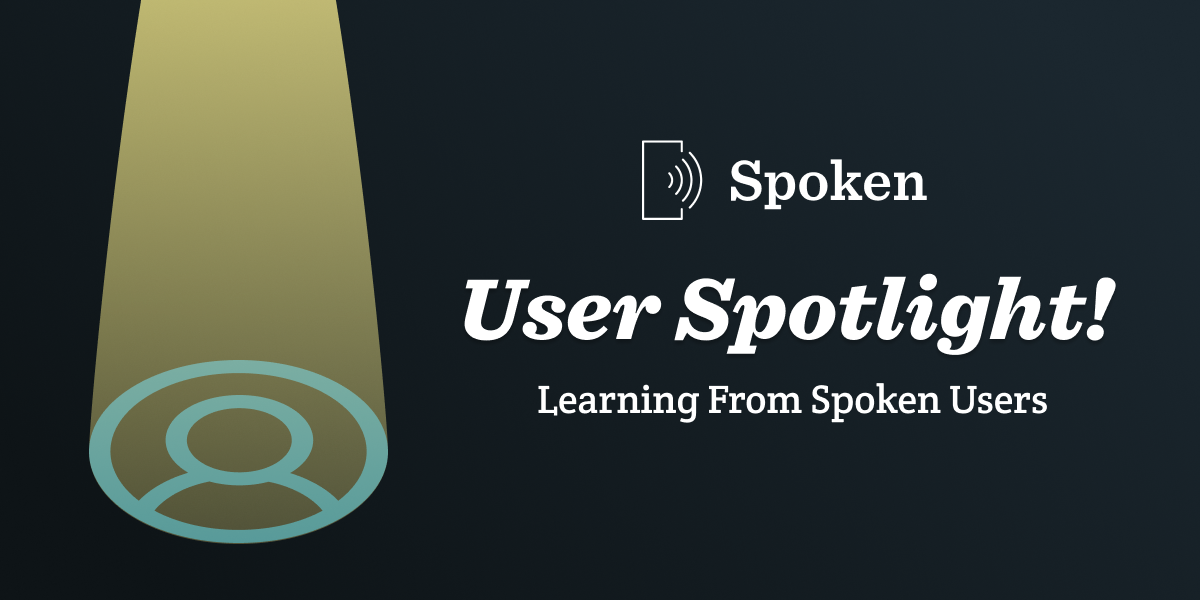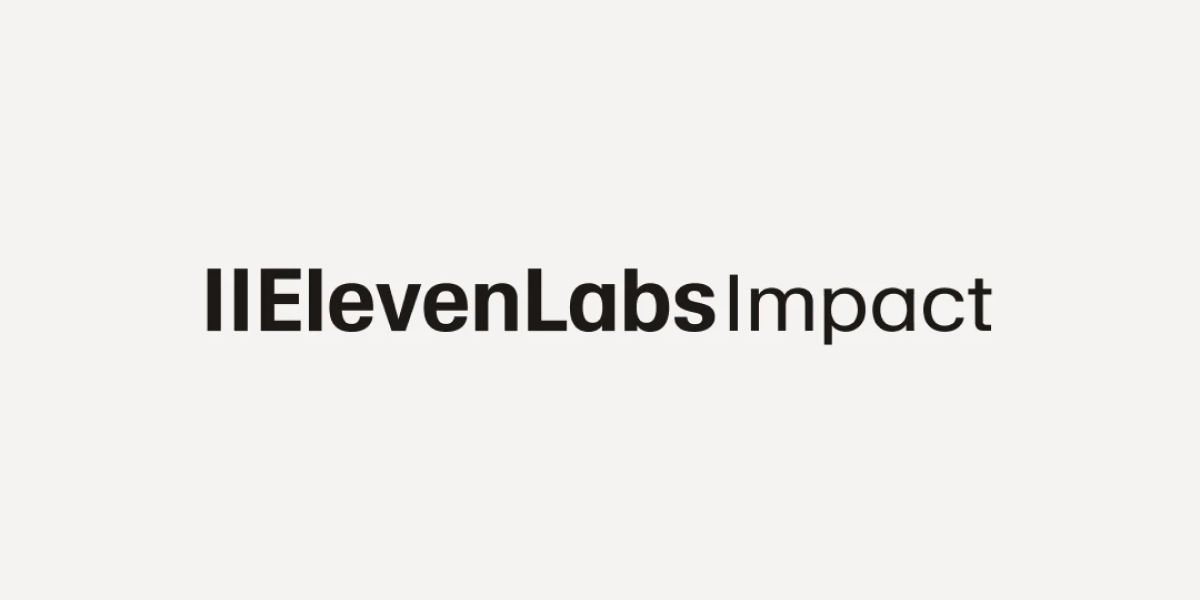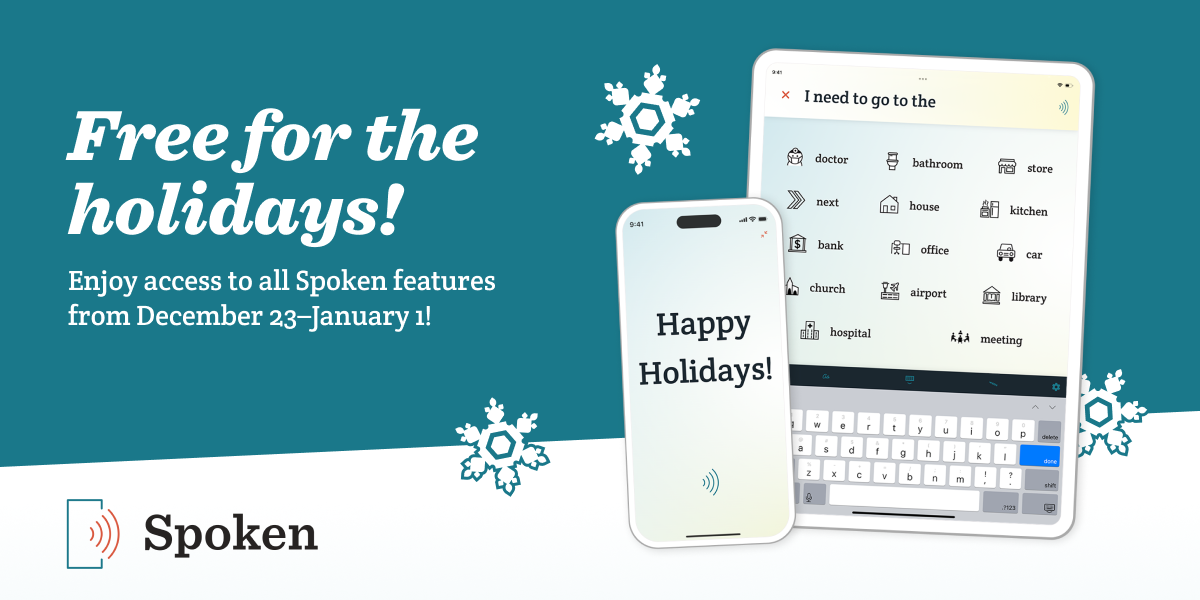User Spotlight: An Anonymous Take on Spoken AAC

Welcome back to Spoken’s User Spotlight! As you can tell, we had the privelege of interviewing another one of our users. While they preferred to remain anonymous, their candid responses provided a wealth of insights. From how they navigate daily interactions using Spoken to their favorite features of the app, we learned so much about their communication journey and the role Spoken has played in it.
Even more exciting, our conversation shed light on their hopes for Spoken’s future development. Their valuable feedback will help guide us as we strive to make our AAC app even more impactful, user-friendly, and aligned with the real world needs of AAC users. As always, we’re grateful for their input and for the chance to continue growing alongside our amazing user community.
The Interview
Q: How did you find out about Spoken?
I actually found it just searching for “AAC” in the Google Play Store.
Q: How do you use Spoken?
Most days I lose the ability to speak after a certain time, and that’s when I use Spoken to communicate instead. I use it the most with my partner and caretaker, since that’s who I interact with the most. A typical day goes like this: I realize that I need to use a communication aid, so I open the app and choose one of my saved phrases, “I can’t talk”. Then I will construct sentences mainly by tapping the suggested words. The suggestions are generally enough, but if I’m determined to use a very specific word I will type the first 2-4 letters of that word and it usually shows up immediately! I use Spoken both to answer questions that require more than a Yes/No answer and to keep a conversation going.
Q: What do you like about Spoken?
There is a lot to like. I like that it’s progressively learning my common words; that’s my favourite part of the app. The wide variety of voices and ability to customize them is also one of the things I love about Spoken. I have it set to a voice that is similar to my own but I’ve also experimented to make the voice as understandable to my partner as possible. The different accents of the voices is a nice touch.
I like the general look and feel of Spoken as well. The soft colours don’t hurt my eyes and don’t overwhelm me while still having proper contrast so that it’s easy to read. The look is also very adult, not like most AAC apps.
Having your own custom pre-saved phrases is also helpful. I have saved 9 phrases so far and I’m sure I’ll just add more and more as I come up with them. I enjoy being able to construct really any kind of sentence since there seems to be an endless supply of suggested words and the ability to type as well.
Q: Are there any features you would like to see added?
More languages! I know that’s a tall ask, but I’m actually Swedish and not everyone I would like to use the app with understands English as well as I do.
Another little thing that bugs me is that I can’t play the alert sound after I’ve typed something.
Editor’s Note: Version 1.8.9 of Spoken, which we released after holding this interview, lets users play the alert even if they’ve already typed something out. For more details, see our blog about 1.8.9.
Q: Is there anything else you want people to know about Spoken?
I’m so grateful for this app. It really is perfect for me. I’ve even thought of writing a social media post to spread the word, and I probably will in the near future. It’s the perfect option to bridge the gap between a pure typing text-to-speech and picture-based AAC. I really hope it will get the attention I think it deserves. Thanks for the opportunity to share my experience with the app!
Help Us by Reaching Out!
We would like to express our gratitude to our anonymous interviewee for answering our questions and allowing us to share their insights! We believe that there are countless more stories out there waiting to be shared, so if you or someone you know uses Spoken, we encourage you to reach out to us! Your experiences are essential in helping us understand the diverse ways people utilize AAC technology. By learning from your journeys, we can continue to improve and innovate.
About Spoken
Spoken is an app that helps people with aphasia, nonverbal autism, and other speech and language disorders.


